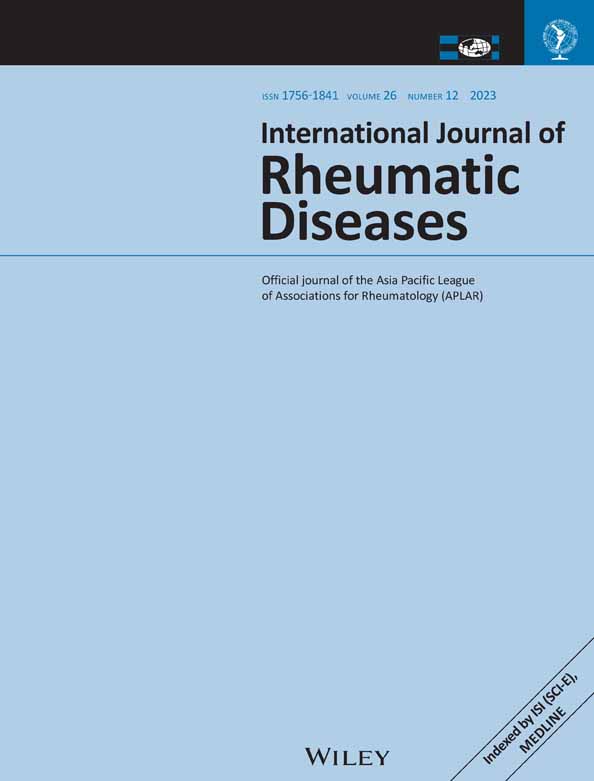Adherence to the Mediterranean diet is associated with a reduced DAS28 index among patients with rheumatoid arthritis: Case study from KRRD
Abstract
Background
Rheumatoid arthritis (RA) is a chronic, autoimmune disease that mostly affects the synovial joints. It has been hypothesized that dietary and other environmental and lifestyle factors contribute to the development of RA and its severity.
Objective
The present study aims to measure the effect of the Mediterranean diet (MedDiet) on the disease activity scores (DAS28) among patients with RA.
Methods
Adult patients who satisfied the American College of Rheumatology (ACR) classification criteria for RA from major hospitals in Kuwait were evaluated. A cross-sectional study conducted on 754 RA patients visits aged (21–79) years. Patients were evaluated using the DAS28. Patients' levels of adherence to the MedDiet are assessed using a validated 14-item Questionnaire (paper or web-based). The data was analyzed using both multivariate and univariate statistics. Multivariate logistic regression was used to analyze the statistical relationship between MedDiet and RA disease activity.
Results
The finding suggests that a MedDiet can have a positive impact on DAS28 among patients with RA. In the DAS28 cohort (DAS28 < 3.2, DAS28 ≥ 3.2), several Mediterranean survey components showed statistically significant differences. Patients with a Mediterranean score ≤ 5 was more likely to have hazard effects for DAS28 than those with a Mediterranean score of ≥10 (HR = 0.17, CI [0.08–0.37], p < .001). The finding shows that, Mediterranean levels ≤5, on biologics treatment, CRP, and patient global assessment were significantly associated with overall survival. Additionally, the MedDiet was found to be a significant predictor of DAS28 in the random forest decision tree plot, along with tender, RF, and creatinine. MedDiet patients had a lower DAS28 score than others.
Conclusion
The findings suggest that optimal drug treatment and a restrictive diet can help to improve DAS28 score for patients with RA. More patients in the cohort DAS28 <3.2 used olive oil, servings of vegetables, fruits, and legumes. In contrast, more patients in the cohort DAS28 ≥ 3.2 consumed red meat, butter, sweetened or soft drinks, cakes, cookies, or biscuits, and tomato sauce.
Open Research
DATA AVAILABILITY STATEMENT
The data that support the findings of this study are available from the corresponding author upon reasonable request.




